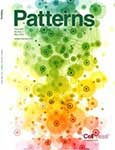Supporting Publications

Cell publishes findings of significance in all areas of experimental biology, including: cell biology, molecular biology, neuroscience, immunology, virology and microbiology, cancer, human genetics, systems biology, signaling, and disease

Neuron has established itself as one of the most influential and relied upon journals in the field of neuroscience. The editors embrace interdisciplinary strategies that integrate biophysical, cellular, developmental, and molecular approaches with a systems approach to sensory, motor, and higher-order cognitive functions. Neuron serves as one of the premier intellectual forums of the entire neuroscience community.

Cell Reports is an open-access journal from Cell Press that publishes high-quality papers across the entire life sciences spectrum. The primary criterion for publication in Cell Reports, as for all Cell Press journals, is new biological insight. Cell Reports publishes thought-provoking, cutting-edge research, with a focus on a shorter, single-point story, called a Report, in addition to a longer Article format. Cell Reports also publishes Resources, which highlight significant technical advances and/or major informational data sets.

For over four decades, Trends in Neurosciences (TINS) has been a prominent source of inspiring reviews and commentaries across all disciplines of neuroscience. TINS is a monthly, peer-reviewed journal, and its articles are curated by the Editor and authored by leading researchers in their respective fields. The journal communicates exciting advances in brain research, serves as a voice for the global neuroscience community, and highlights the contribution of neuroscientific research to medicine and society.

Cell Stem Cell is a broad-spectrum journal that covers the entire spectrum of stem cell biology. Topics covered include embryonic stem cells, pluripotency, germline stem cells, tissue-specific stem cells, stem cell differentiation, epigenetics, stem cell genomics and systems biology, genome reprogramming, cancer stem cells, stem cell niches, stem-cell-based disease models, nuclear transfer technology, bioengineering, drug discovery, in vivo imaging of stem cells, therapeutic applications, regenerative medicine, clinical and translational insights, stem cell research policies, ethical issues, and technical or resource-based innovations. We will consider studies from any model system that provides insights into stem cell biology, and we encourage submissions on human stem cells.

Essential reading for those working directly in the cognitive sciences or in related specialist areas, Trends in Cognitive Sciences provides an instant overview of current thinking for scientists, students and teachers who want to keep up with the latest developments in the cognitive sciences. The journal brings together research in psychology, artificial intelligence, linguistics, philosophy, computer science and neuroscience. Trends in Cognitive Sciences provides a platform for the interaction of these disciplines and the evolution of cognitive science as an independent field of study.

Current Biology is a general journal that publishes original research across all areas of biology together with an extensive and varied set of editorial sections. A primary aim of the journal is to foster communication across fields of biology, both by publishing important findings of general interest from diverse fields and through highly accessible editorial articles that explicitly aim to inform non-specialists.
Current Biology publishes papers reporting findings in any area of biology that have sufficient claim to be of general interest—this could be, for example, because the advance is important for a specific field, or because it is intrinsically of wide interest to biologists generally.

Trends in Genetics was launched in 1985 and quickly became a “must read” journal for geneticists, known for its concise, accessible articles on a range of topics from developmental biology to evolution. This tradition continues today, and TiG remains a favorite in the community for its distinctive content. As the field has changed, though, so too has the scope of the journal, which now encompasses new areas, such as genomics, epigenetics, and computational genetics, while continuing to cover traditional subjects like transcriptional regulation, population genetics, and chromosome biology. The core aim of the journal, however, is still to provide researchers and students with high-quality, novel reviews, commentaries, and discussions and, above all, to foster an appreciation for the advances being made on all fronts of genetic research.

Med, a new journal from Cell Press, publishes transformative, evidence-based science across the clinical and translational research continuum – from large-scale clinical trials to translational studies with demonstrable functional impact, offering novel insights in disease understanding.
We aim to elevate the global standard of medical research by accelerating translation of bench research to the clinic, serving as a hub for engagement between all stakeholders, improving reproducibility, and changing medical practice.

Cell Reports Medicine is a new broad-scope, open access journal from Cell Press, publishing original, thought-provoking research from exciting translational concepts in human biology, health, and disease to all phases of clinical work.

Heliyon is an all-science, open access journal that is part of the Cell Press family. Any paper reporting scientifically accurate and valuable research, which adheres to accepted ethical and scientific publishing standards, will be considered for publication.

Patterns is a new gold open access journal publishing transformative, peer-reviewed research across the spectrum of research disciplines including computational, physical, life, and social sciences, and the humanities. Published from Cell Press, Patterns promotes all types of research outputs and facilitates sharing and collaboration to solve key scientific problems and aid in the development of solutions for practice, policies, and management.
Visit the journal homepage to learn more.

iScience publishes basic and applied research that advances a specific field across life, physical, and earth sciences. It's an open access journal with continuous publication, so research is immediately accessible. Our no-nonsense approach to submissions is simple, fast, and fair, and our commitment to integrity means we publish transparent methods, replication studies, and negative results.

When it comes to protocols, usability and reproducibility are key. That's why STAR Protocols are structured, transparent, and accessible.
STAR Protocols works for you. If you're an author, we'll work with you to ensure you have the space and structure you need to explain what worked and perhaps, more importantly, what didn't. If you’re a reader, you can be sure that STAR Protocols meet the high quality standards you've come to expect from Cell Press.